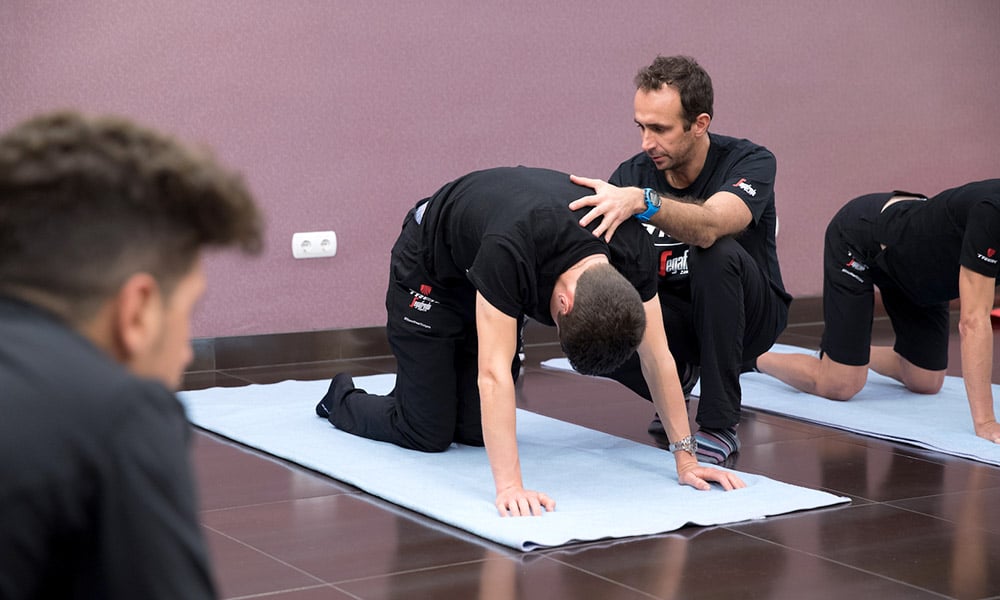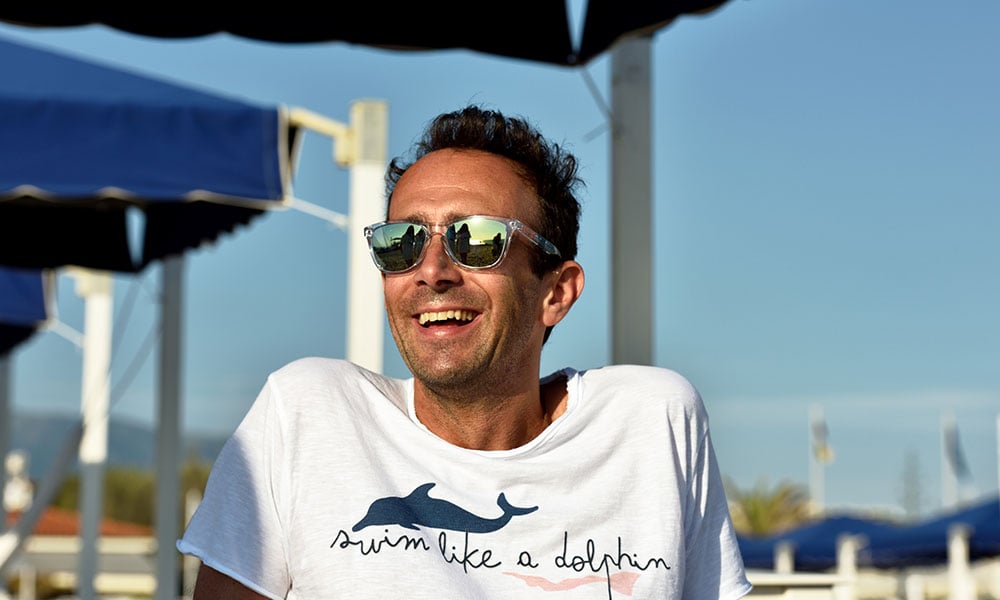Tell us a bit about your dive history.
I was a free diver and still am a free diver. I was lucky enough to meet the legendary Umberto Pelizzari, and not long after joined his entourage for trainings, travels and world records. I began to free dive professionally myself in the early 2000s, and my career took me to underwater all over the world. But in 2005 tragedy struck when my best friend died during a dive.
What happened next?
After that, I stepped back from competitive diving and began to work more as a trainer and safety diver. I continued my studies in the medical field, and then eventually I began to put my medical competence to use as a free diver.
Tell us more.
I work very specifically with breathing and breathing technique, with the goals of improving performance and reducing recovery times. Essentially, we’re helping athletes increase their oxygen supply, and teaching their muscles to work better without oxygen. We work specifically with the diaphragm to have more oxygen. Then next is to be master of your breath. To be more conscious about have more air.

Mike Maric working with Trek Segafredo pro cycling team (©Trek-Segafredo)
To be more conscious? That sounds like a mind game…
Absolutely. Science shows us it’s not physical, but mental – apnea technique is really important, but we also know mental is really important! My students really learn how to improve the mental conditions and discover new limits inside of themselves!
And now your work includes lots of people who don’t dive and don’t intend to.
Everyone in the world can benefit from better breathing techniques! Over the last few years I’ve been working with many athletes from different disciplines – beginning with triathletes, but now including martial arts masters, fencers, and more. I’ve even helped an oncologist who uses the techniques with his cancer patients.
How do you help a world champion in fencing?
The first goal in fencing or karate is to relax before the performance – reduce the stress and lower the heartbeat. The second is to reduce the recovery time. In fencing, for instance, world Paolo Pizzo is going full-speed for 30 seconds, then rest. During that rest time he moves his shoulders, breathes in a specific way, and recovers very quickly. The first time he did that, a lot of people wondered what he was doing – but it works.
How do you use your Suunto?
The Spartan is an extremely important tool for me – I use it to see breath frequency and heart rate.

Medically educated forensic scientist Mike Maric has taken what he’s learned from free diving and applied it to a multitude of other sports.
How can you help amateur athletes?
There are for sure some simple exercises to be conscious about your breathing. When I ask people ‘how do you breath?’ they don’t know! They know about shoes and running, they know about eating, they know about supplements! But they don’t know how they breath! We need to breath not with the chest, but with the diaphragm! But you need to practice continuously – the basics, about eight minutes each day. That’s enough time to improve over six weeks – although it’s different for each athlete.
No yoga.
Ha! I don’t do yoga. I back up medically sound advice with scientific evidence. Better breathing can improve your mental condition, increase performance, and decrease stress. That’s science!
For more info on Mike Maric's work visit mikemaric.com